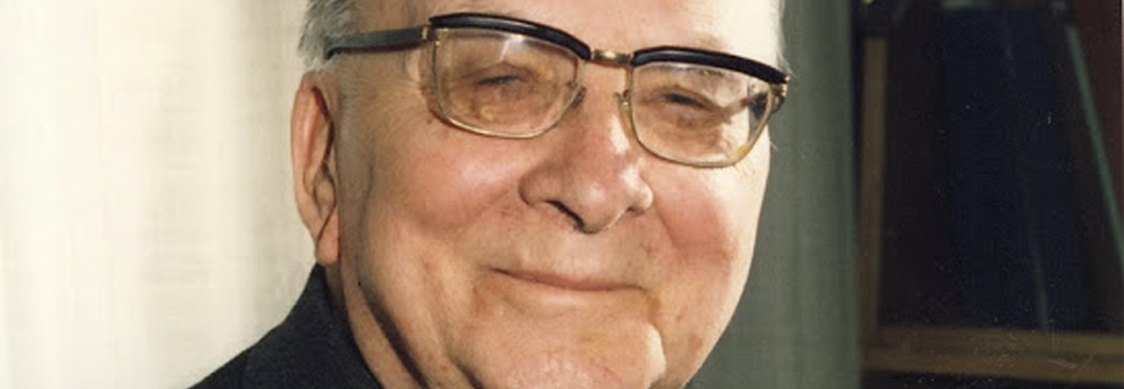Priest (September 24, 2010)
The Spanish Martyrs
Born on September 30, 1904 in Maribor in Slovenia, Andrej Majcen received a good Christian family upbringing: his father, Andrej, was a practical person always ready to help people in difficulty. In Andrej’s heart the rule was already implanted, “Be kind to everyone and you will never regret it!” His mother, Marija Šlik, a very devout woman, advised Andrej to consider a calling in the Church, but his father’s view, which was to go into teaching, thinking this the best way to help people, prevailed. His mother, fearing that he might be lost, recommended, “You must never forget Mary most holy!” and gave him the Treatise on the Divine Love by St. Francis of Sales for spiritual reading. At the Teachers’ College in Maribor he continued to do well, and made a daily visit to the Marian Shrine and also to the baptismal font where he had become a child of God. He developed a hard-working temperament and decided to carry out everything he could possibly do without worrying too much about problems.
His studies over, he joined a Salesian school at Radna to begin his teaching, but the Salesians stirred in him a religious vocation with the sons of Don Bosco. He was fascinated by Don Bosco’s life and in 1924 decided to enter the Salesian novitiate. He experienced a number of humiliations, at times suspicion, even calumny, and his time in the novitiate was extended, but he persevered — modeling his character on Don Bosco’s spirit.
The 10 years at Ljubljana – Rakovnik were a time of preparation for his missionary vocation. Due to his poor knowledge of Latin, some wanted him to be dismissed, and then due to the effort he had to put in and a lack of good nourishing food, his health was seriously undermined. News of the martyrdom of Bishop Louis Versiglia and Fr. Calistus Caravario in 1930, reawakened in his heart, a desire for the missions. His encounter with missionary Fr. Jožef Kerec in 1932 brought him to a decisions to leave for the missions to China. In 1933 he was ordained a priest and on August 15, 1935 in the Shrine of Mary Help of Christians at Rakovnik, he received his mission cross, and made a covenant of life with Mary Help of Christians, so to speak.
He began his adventure with the experience of the preventive system in Kunming, with the great missionary Fr. Jožef Kerec. Fr Majcen’s decision was decisive and right, “I will proclaim the Gospel to the Chinese in Chinese, because I will be Chinese with the Chinese.” He grew to love them as brothers and sisters and soon learned the language. He was not dismayed by the resentment of some other missionaries and nurtured a preferential love for poor youngsters and poor people. Everyone found in him a sincere father and friend.
He was humble, open to all, and ready for sacrifice and work. Already then it was said of him, “Be humble and kind like Fr. Majcen and you too could be a saint!” Even communist authorities in the Mao period saw a man working for the good of the Chinese and while other missionaries were expelled or imprisoned he ended up teaching Russian for a year in a state school. But after this, he too was expelled the first time, suffering his first exile, but was not beaten. He licked his wounds and headed for a new mission.
In Hanoi, later, he set up an orphanage with five dollars in his pocket. There were 550 orphans at the time, but they found a caring father in him. After the fall of North Vietnam, he went south with the orphans to save their lives.
This became the golden time of mission for him. Starting with nothing, after 20 years in Vietnam, a huge Salesian tree had grown and the Salesian presence in Vietnam had become strong and generous. This is why he is known as “The Don Bosco of Vietnam.” As rector, vice provincial, first director of novices, but especially as the one who gave rise to and formed religious vocations, he became the one who transplanted Don Bosco’s charism in the Vietnamese soul following his principles, “Vietnamese with the Vietnamese, as the Vietnamese would act.” He was the first, with the help of some others, to translate the Constitutions into Vietnamese. He welcomed anyone into the Salesian communities, without excluding people, but always with preference for those most in need. This certainly meant he was deeply appreciated and accepted.
When the communists came to power, he declined the offer from an American General to be whisked to safety along with the other Salesians. He said, “The Vietnamese should stay with the Vietnamese and I’m staying with them!” Then he sent the confreres away to the countryside, in small groups, thus keeping them safe. Even the new “masters” recognized his work for the good of the people. Even as a foreigner he was given the right to vote in the peoples’ assembly. When he eventually left they said, “You have educated Vietnamese Salesians well, and now they continue your work…” He was expelled, but “softly,” and was given due recognition for his contributions. Physically exhausted, but spiritually mature, he went to Taiwan where he was acknowledged as a spiritual director and great friend of the young. Under doctor’s orders he was to return to his own country to regain his physical health. It was a departure with no return.

